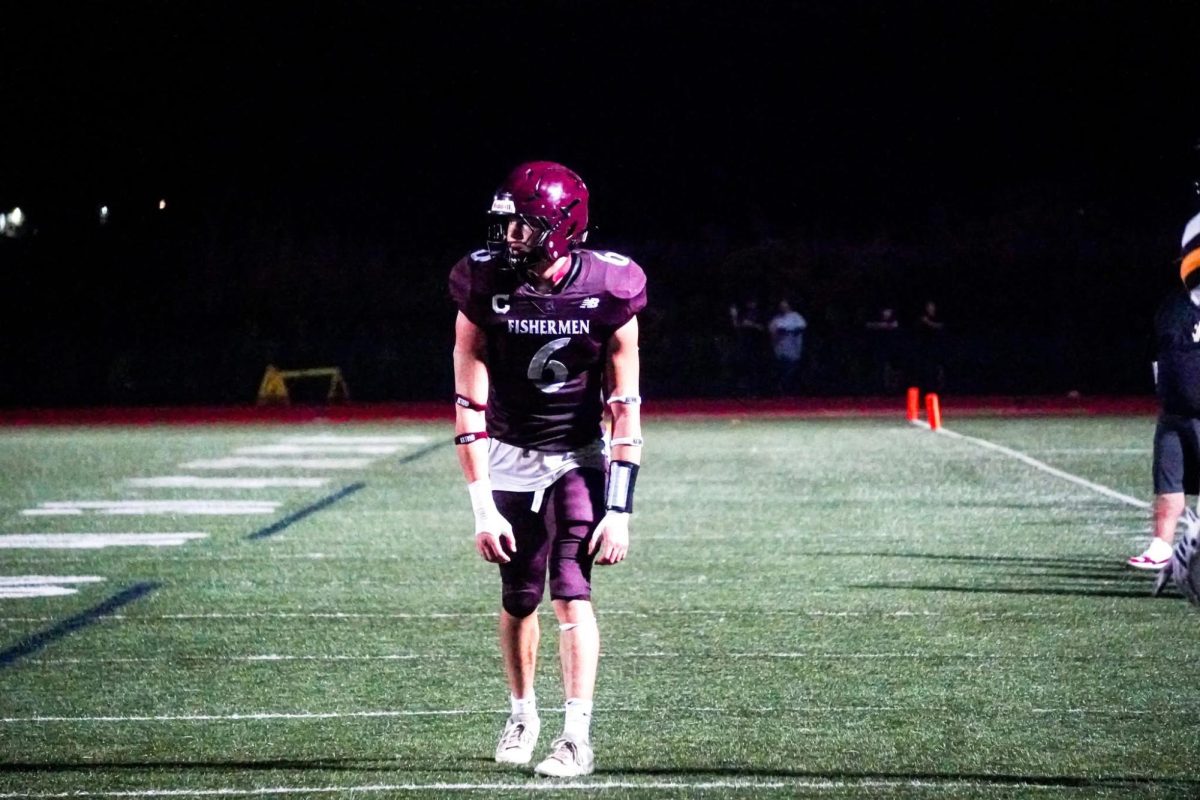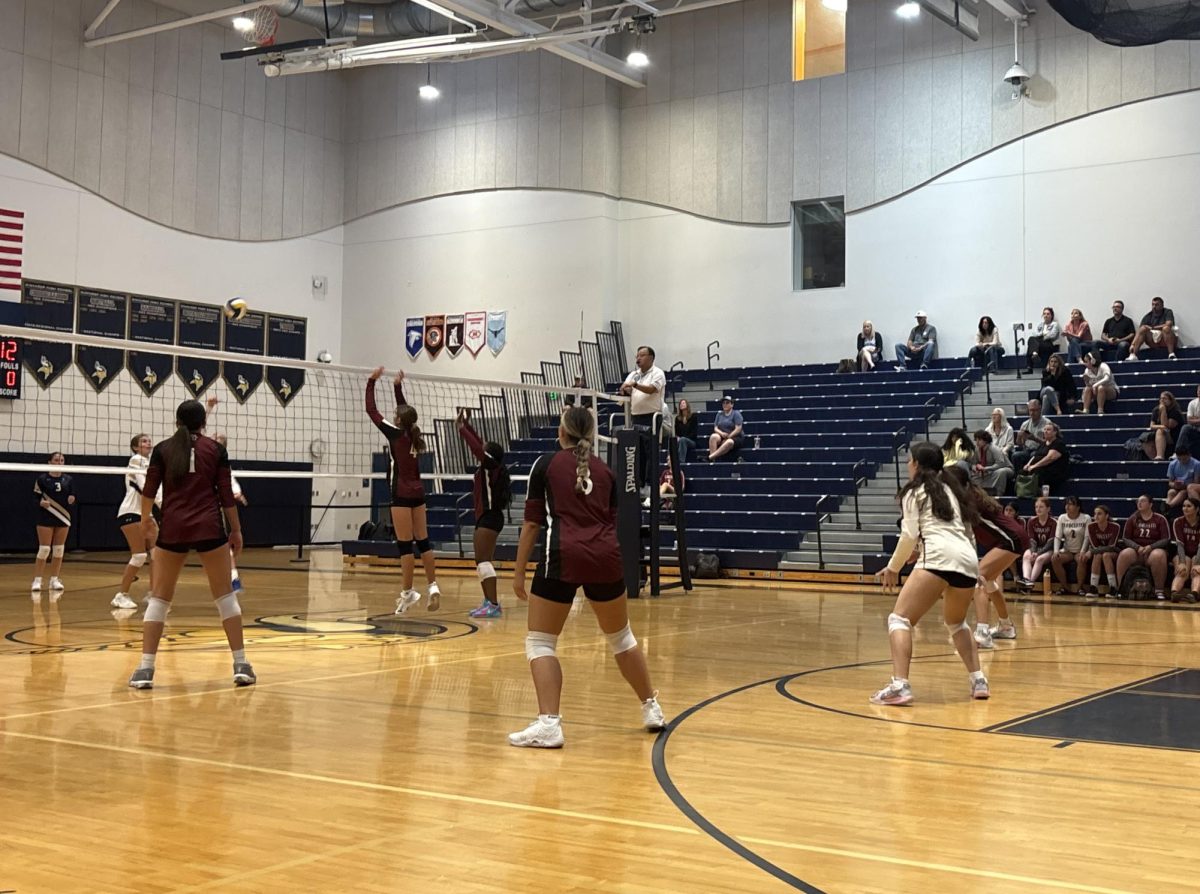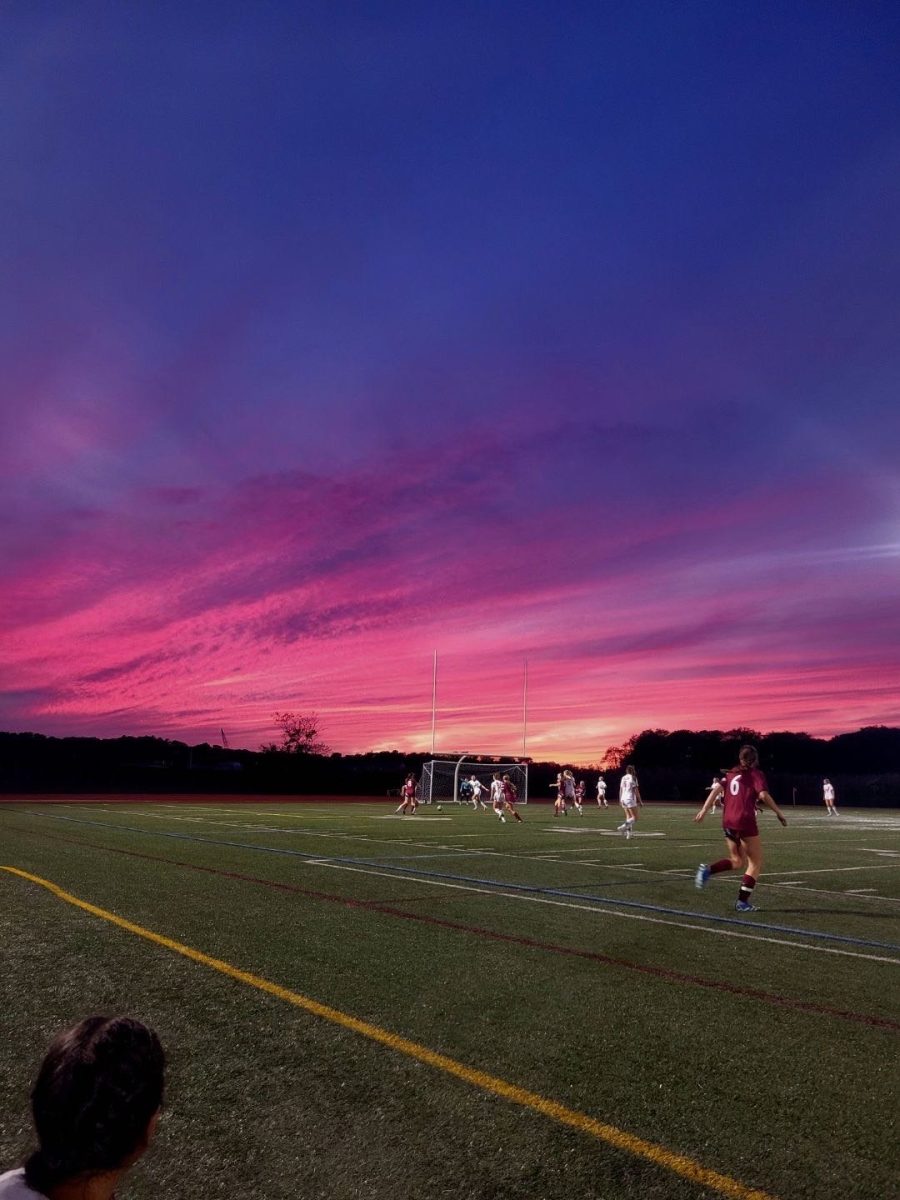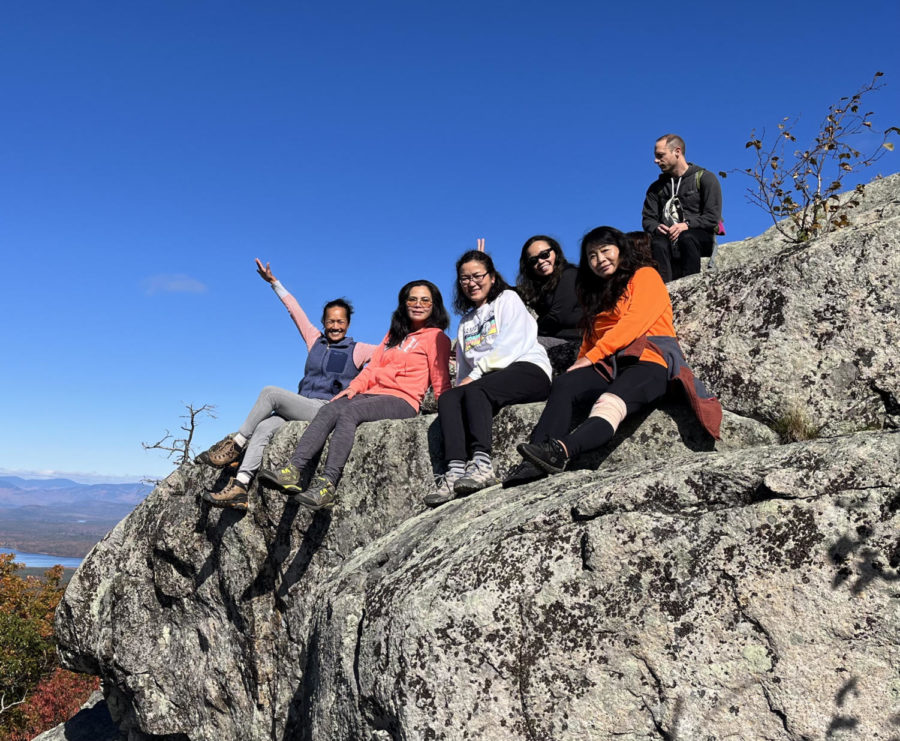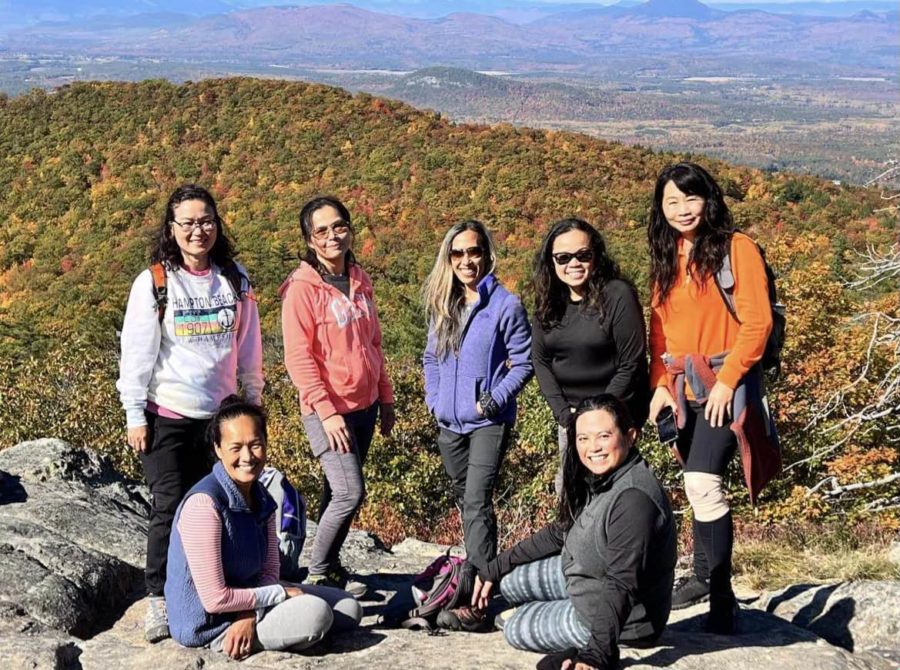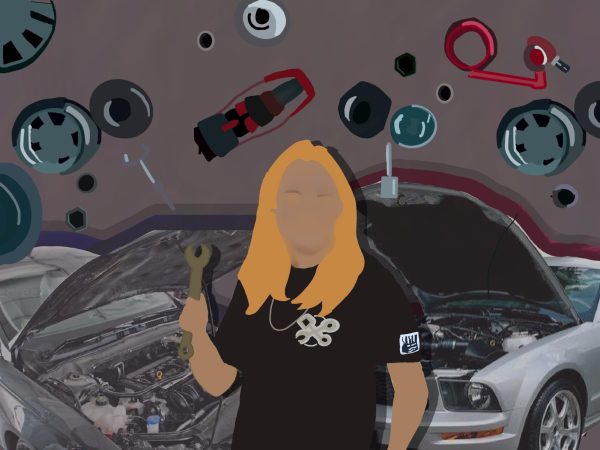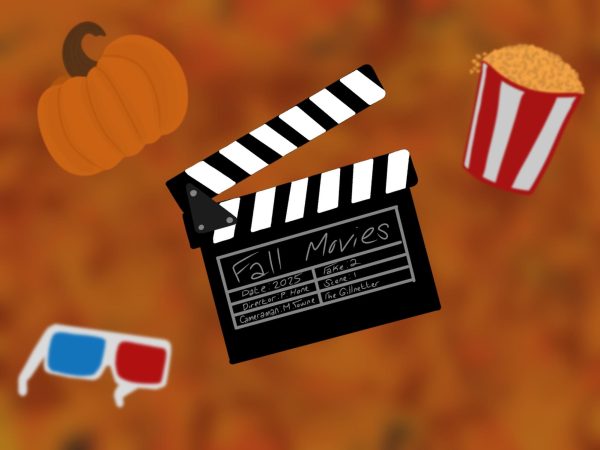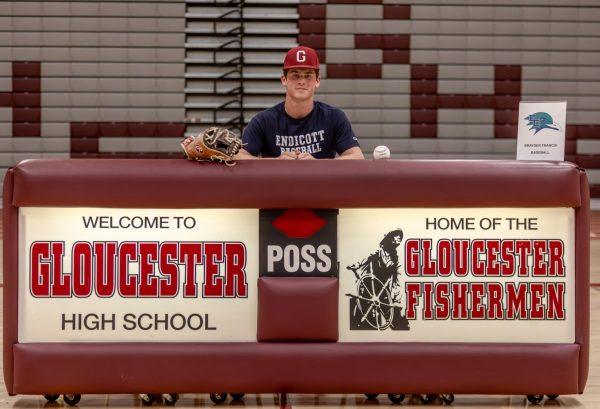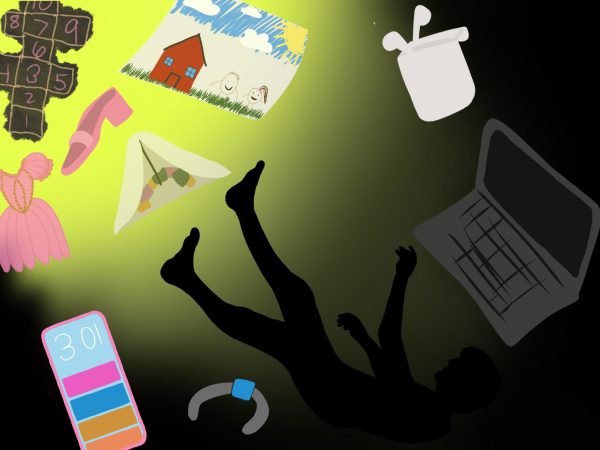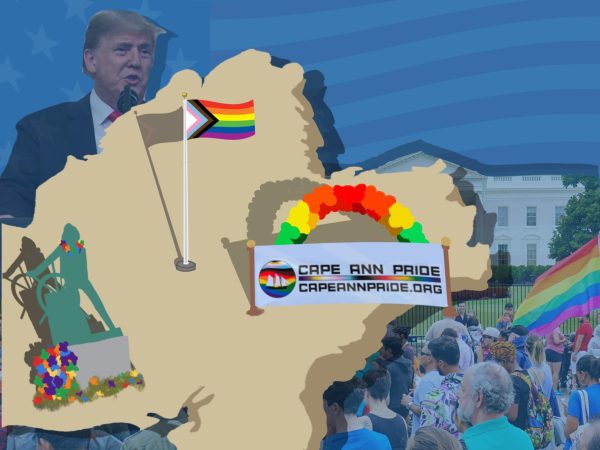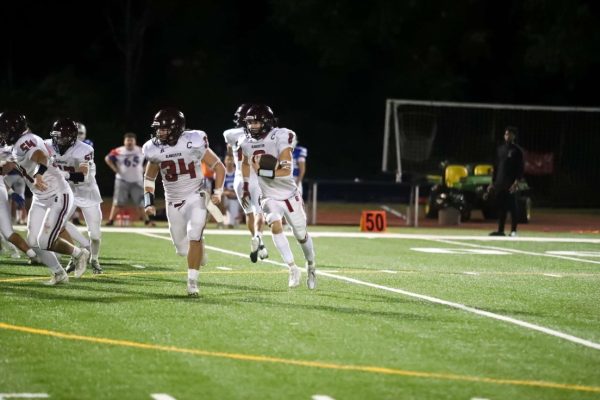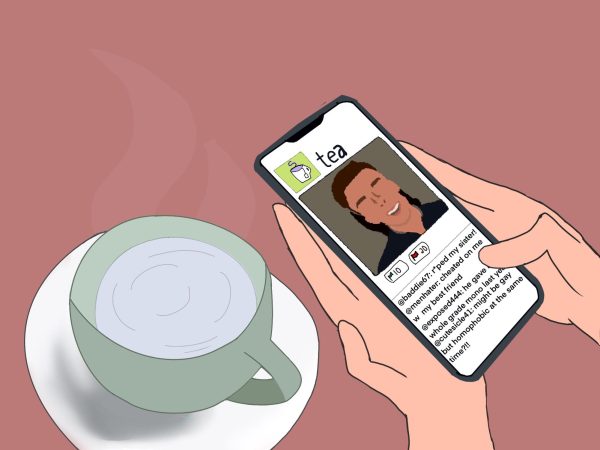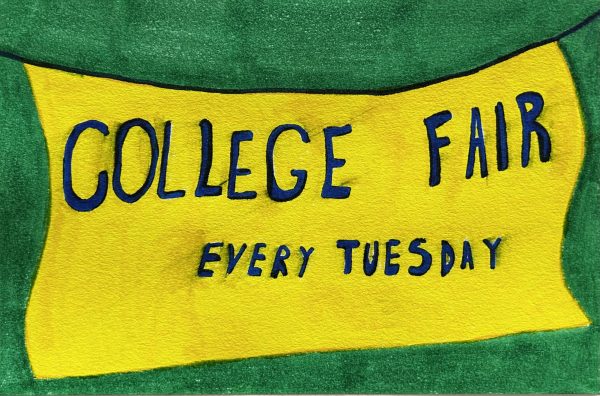Finding a Community Across the Globe
A hiking group of some of Gloucester’s Asian immigrants pose for a photo
Gloucester, Massachusetts, established in 1623 after the Pilgrims landed in Plymouth, is home to the nation’s oldest seaport, known for its tourism, beaches, and fishing community. With a current population of thirty thousand and rising, our community is of mainly Sicilian and Portuguese descent. In the 17th century, as the Industrial Revolution began, Italians—specifically Sicilian—migrated to Gloucester to take part in the growing commercial fishing industry. Then, in the 1840s, immigrants from the Azores migrated here to also work in the fishing industry. Now, as of 2023, Gloucester’s demographics are 91.7 percent white, 2.1 percent black, 0.1percent Native American/ Indigenous, and 1.6 percent Asian. Compared to other communities in Massachusetts, like Quincy, with an Asian population of 29.9 percent, Gloucester is a predominantly white community. This aspect impacts Asians who move into our community and especially those that grew up in Gloucester.
Asian Americans come to Gloucester for many reasons, either because of a spouse, work, or just because they love the ocean. However, one commonality they all experience when they first move to Gloucester is realizing the scarce diversity in this town. For some, this aspect made them feel very lonely and isolated from the community at first and sometimes disconnected from their culture and language. For instance, Han Bun St. Peter moved here in January 2002 from South Korea because her husband lived in Gloucester,
“There are no Koreans here or Asians really,” St. Peter said. “I only see other Koreans when I go to church in Andover, which is far far from here. There are even no Korean restaurants in this area, the one in Beverly is half Americanized and doesn’t taste the same.”
Since they weren’t Sicilian or Portuguese, it was harder for them to relate and connect to the close-knit community. Gloucester is a welcoming town to newcomers, but it can take time for some to fully open up to outsiders.
“I came to Gloucester in 2000 to work at a dental practice,” Dr. Harrison, who immigrated to America in 1980 from Vietnam, then moved to Gloucester in 2000, said. “At the time there were only a couple Asian people and other people of color. It was very obvious that Gloucester was a tight-knit community, so in the beginning I wasn’t really accepted because I was Asian. However, the people and patients were nice to me and I didn’t experience much racism, especially compared to when I first came to America from Vietnam as a kid, poor and speaking no English.”
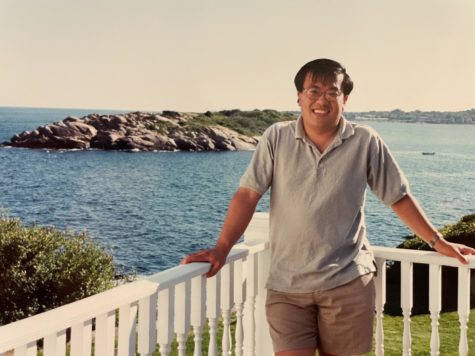
Vanny E, a Cambodian immigrant who moved to Gloucester in 2005, also recalls her struggles when first moving to Gloucester. “Gloucester is a very quiet place with no Asian community, but I got used to it after having my daughter,” E said. “No, I don’t feel connected to my culture in any way or feel I have found a place in our community. After a while I just got used to being alone.”
Filipino Community
Gloucester has had a thriving solid Filipino community for a while, specifically moms. When they first move to Gloucester, they already have a welcoming community they feel a part of and who can help them. Furthermore, this has allowed them to share traditional Filipino foods, either by buying from authentic stores and bringing them back or cooking foods from home and sharing them, allowing them to feel connected to their culture.
“Every weekend we would host a party with Filipino foods and drinks,” Lizel Dela Rosa Stauffer, who moved to Gloucester in 2005 from the Philippines, said. “Everyone is super open and welcoming towards each other and newcomers. At first, I couldn’t go too often because I had to take care of my little kids at the time, but the parties were super fun. Plus, it’s nice to be able to speak Filipino to each other and be around others who share the same culture and experiences.”
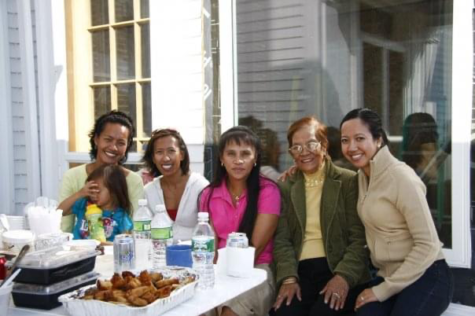
Racism
For those living as a minority in a community, many are unfortunately bound to face some types of racism, from ignorant comments to severe discrimination. This can happen anywhere from school, to stores, to even at the workplace. Grace Tierney, a Chinese student at Gloucester High School who grew up in Gloucester describes some of her experiences over the years.
“I’ve experienced racism. You know, the basic things, like eating dogs and slurs, but this was mainly when I went to Rockport Elementary School,” Tierney said. “Now, it’s not as bad as back then, but at the high school many people see racism as a joke and a lot of the time I hear small racist comments, but you can’t say anything about it or else people get offended and for the smallish stuff it’s not worth it after a while. I don’t feel excluded here and it’s not like I’m going to get hazed or stabbed or anything.” Tierney was adopted from China at a year old, and then moved to the Dominican Republic, then moved to Gloucester at 4 yrs old.
“Yeah, in middle school I had a few experiences,” one anonymous student said. “One time, two girls followed and harassed me while I was on a run around our neighborhood. They were yelling racial slurs and stuff but I was busy running so I didn’t pay too much attention to them. Then during 8th grade, this kid behind me would keep coughing and laughing out racial slurs at me during class about being Asian and the whole virus thing.”
The Covid-19 pandemic began in 2019, but Massachusetts did not start our quarantine until March of 2020. During this time, Asian hate rose 339 percent nationwide in 2021, according to NBC News. Many Asian people from young to old were racially targeted across the country. These targets included verbal assaults, stabbing, shoving elders, and beating up innocent people in broad daylight. Although nothing severe happened in Gloucester, here are some more recounts of experiences after the pandemic occurred:
“One time at work, there was a customer from Florida at the restaurant who wanted a discount,” Lizel Dela Rosa Stauffer said. “I was really busy working at the time and so, of course, I couldn’t help him. He started yelling at me saying “Look at that f***ing Chinese woman sitting!” Then he just went off yelling other racist stuff. We tried to de-escalate the situation because nothing good comes out of it and it’s a waste of time trying to correct him.” Dela Rosa Stauffer is Filipina, not Chinese.
“When the COVID pandemic struck, it was 2021 when I came back with a cough from visiting my family in the Philippines,” Nora C, who grew up in the Philippines, moving around to Singapore, Hong Kong, the West coast in 2001, New York, and finally Rockport in 2014, said. “Then, when I went to my doctor and had a consult with my nurse practitioner who was irritated with me traveling. She told me, and I quote, ‘What do you want me to do? You went to that God-forsaken place and come back bringing Covid.’ My test actually came back negative. Then, my neighbor also told me that I’m the reason for Covid in the US and those people like me who travel to Asia.”
Change
Over the years, the Asian population in Gloucester has grown very slightly. However, the Asian community has grown and gotten stronger. Every weekend there are still Filipino parties being hosted with the moms. They still share Filipino food with friends. Even if the faces in the community have changed and been replaced with newcomers, the Filipino community is still strong and growing. As for the other Asians in Gloucester who aren’t a part of the Filipino community, a large group of Asian moms have come together to create a hiking group. Several times a week, they go on the trails around here to hike for hours, and sometimes they go mushroom hunting. At one point, they went kayaking together all around Annisquam River and Jones Creek. One thing they focus on is being open to anyone, whether they’re new or old to Gloucester. This group has allowed them to create an Asian community where they feel included and comfortable. Since many of them have similar experiences, it’s easier for them to relate to each other and make life-long friendships.
“At first I was just too busy working full-time at the pharmacy so I minded my own business,” Nancy Tran who was born in Vietnam and immigrated to the US in 1989 and then Gloucester in 2002, said. “I wasn’t really looking for a community, so of course I didn’t feel included in any type of community. After having kids though, and setting up playdates and sports, I met many people I am now close with now. Then over time, I discovered other Asian moms in a community that has basically no Asians, and now we kind of have our small community. I met Lizel in 2010 from my kids who went to St. Anns, and we have been close friends since. Through her, I met other amazing women too, and now we all hang out and hike all the time. ”
In addition to hiking, they have been to Maine twice now, staying in a cabin for a few days as a group. There, they go kayaking in the lake and hiking in the mountains for the whole day. Each one is responsible for cooking and bringing typically traditional food to share. While on this trip, everyone can get closer and enjoy time away from their kids. Sometimes, they even enjoy karaoke for a while after getting back from hiking.
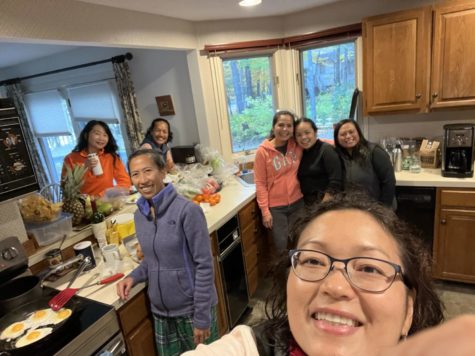
Do they feel more connected to the community now?
“I feel much more connected now than before,” Mingchu Hsu, who moved to Rockport in 2018, said. “At first, I only knew a few Taiwanese wives in Rockport and the States because I already knew them beforehand in Taiwan. We don’t hang out much though. However, I met Nora six months after moving to Rockport and we’ve been hiking together for two or three years already, and now we hike together as a big group almost every day. If the weather is good we’re most likely out in the woods. I feel more comfortable being with the other Asian moms, even though we are all from different Asian countries we share similar experiences though.”
Nancy Tran feels similarly. “Now, after finding a group of people, I feel more connected. It’s a fun group of moms and it’s like being back in high school where you can be yourself with friends without being judged or anything.”
Advice for Asians moving to Gloucester
As more Asians move into Gloucester, they will likely experience the feeling of otherness and being disconnected from their culture. Other potential difficulties like racism, loneliness, and feeling misunderstood can make the initial years in our community feel challenging. Some Asian-American locals who have already experienced this had some advice for newcomers:
“Like I said, Gloucester is very tight-knit so you need to know a local who likes you and can vouch that you’re trustworthy and a good person,” Dr. Harrison said. “People can be very cautious and not open up to strangers right away but just be nice and respect others. Don’t be afraid to be friendly and they’ll open up to you.”
“Honestly if there’s a language barrier it will be more difficult, but try to branch out and reach out to people,” Dela Rosa Stauffer said. “Start small conversations and don’t feel uncomfortable talking to people you don’t know. Make the first step. Also, if you have kids it will be a lot easier because if you make playdates then you’ll get to know the parents at the school, and of course going to games and activities is a great opportunity.”
“To the new Asians coming to Gloucester, my advice is to explore the area and the people and to bring their culture with them,” Carmela Berlin, who grew up in the Philippines and immigrated to the US in 1986 and lived, was educated, and married in Boston, and later moved to Gloucester in 2002 with her husband, said. “Be real, and they will find their community.”
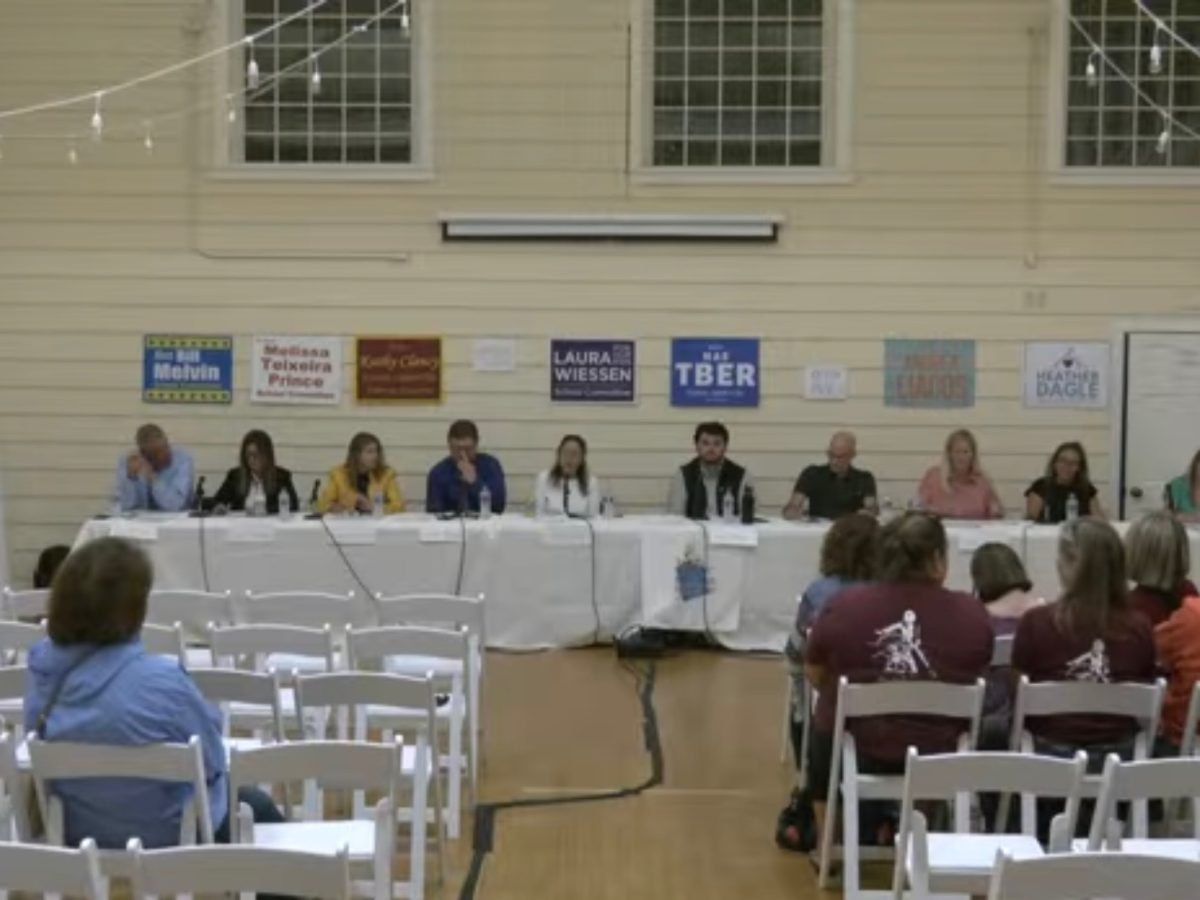


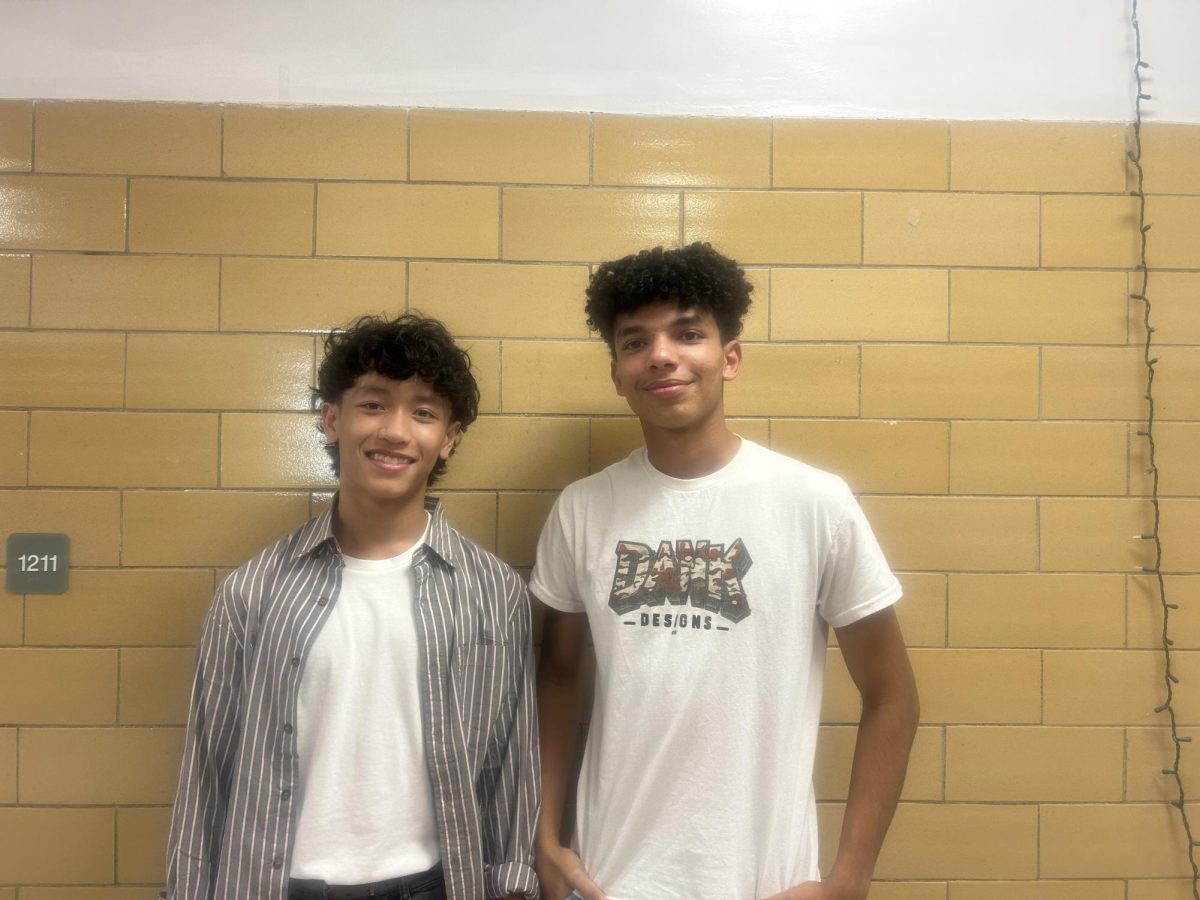
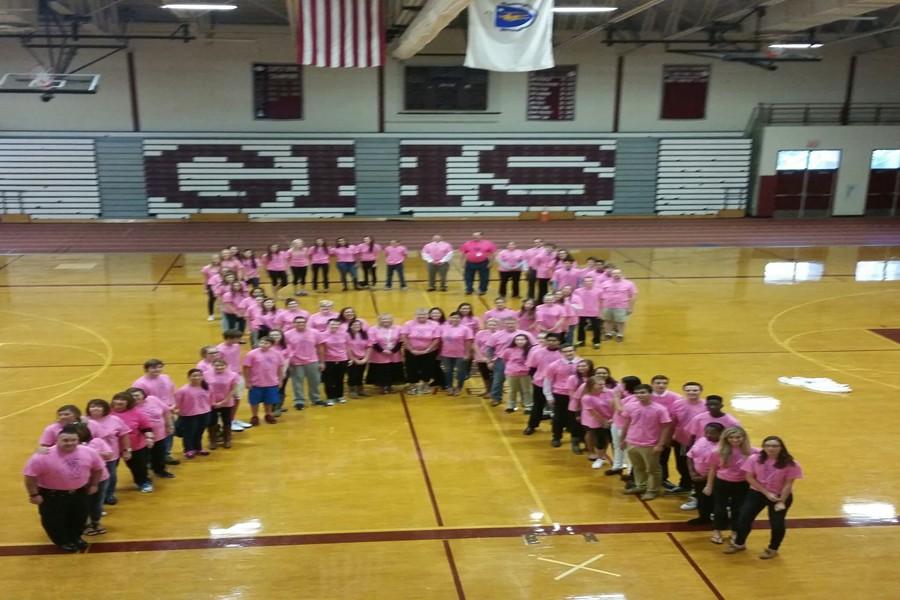






![The GHS/MERHS senior cross country runners pose together on Senior Night. [Photo courtesy of Manchester-Essex Athletics]](https://thegillnetter.com/wp-content/uploads/2025/10/Screenshot-2025-10-10-at-11.18.29-AM.png)
